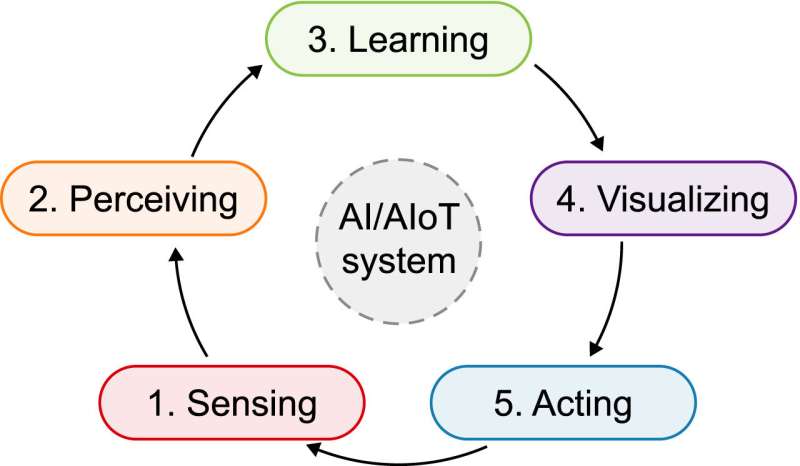

Smarter eco-cities, AI and AI of Things, and environmental sustainability
source link: https://techxplore.com/news/2024-02-smarter-eco-cities-ai-environmental.html
Go to the source link to view the article. You can view the picture content, updated content and better typesetting reading experience. If the link is broken, please click the button below to view the snapshot at that time.

February 2, 2024
Smarter eco-cities, AI and AI of Things, and environmental sustainability
by Eurasia Academic Publishing Group

Smarter eco-cities, characterized by their advanced technological landscape, are at the forefront of ushering in a new era of environmental sustainability. These intelligent urban environments leverage cutting-edge Artificial Intelligence of Things (AIoT) solutions to address and mitigate environmental challenges.
The integration of AIoT technologies enables these cities to harness real-time data, optimize resource utilization, and implement innovative approaches for ecological conservation and resilience. In doing so, they contribute significantly to the creation of more sustainable and resilient urban ecosystems, fostering a harmonious balance between technological advancement and environmental well-being. As we explore the realm of smarter eco-cities, several questions emerge:
- What foundational elements define the emergence of smarter eco-cities, and how do they intertwine?
- What factors serve as the key enablers and drivers propelling the evolution of smarter eco-cities?
- What constitutes the primary AI and AIoT solutions that can be leveraged in shaping the development of smarter eco-cities?
- What challenges and barriers arise in implementing AI and AIoT solutions for the development of smarter eco-cities?
In a systematic review published in Environmental Science and Ecotechnology, invaluable insights and novel perspectives are presented. These findings serve as a crucial resource for policymakers, practitioners, and researchers, providing them with the necessary knowledge to advance the integration of eco-urbanism and AI- and AIoT-driven urbanism.
Since the mid-2010s, the gradual influence of data-driven technologies and solutions in smart cities has been reshaping the dynamics of eco-cities. This transformation aligns with a smarter approach to environmental sustainability, characterized by the integration of core eco-city domains with those of smart cities.
This trajectory is expected to persist as the technologies and solutions of smart cities—including AI, IoT, and Big Data—advance and seamlessly integrate with sustainable technologies and strategies. This integration enables the development of innovative approaches, showcasing the capability to address increasingly complex challenges.
Consequently, the continual advancement in AI and AIoT applications contributes to the ongoing evolution of smart eco-cities, making them even more intelligent in their commitment to achieving environmental sustainability.
In response to the pressing need for effective solutions, these technologies are poised to offer novel applications that not only overcome current challenges but also pave the way for sustained improvements.
Moreover, a positive feedback loop is anticipated, wherein the more these solutions are implemented, the higher the likelihood of their further adoption. This can be attributed to the amplifying effects of network dynamics, continuous learning, adaptive capabilities, and enhanced coordination, creating a reinforcing cycle of positive impact on environmental sustainability efforts.
More information: Simon Elias Bibri et al, Smarter eco-cities and their leading-edge artificial intelligence of things solutions for environmental sustainability: A comprehensive systematic review, Environmental Science and Ecotechnology (2023). DOI: 10.1016/j.ese.2023.100330
Recommend
About Joyk
Aggregate valuable and interesting links.
Joyk means Joy of geeK